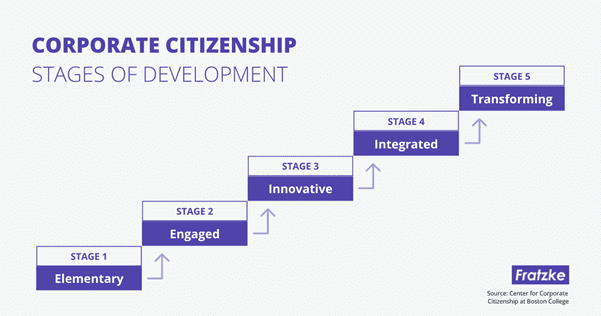What Can Scammers Do with Your Phone Number?
When cell phones first became popular, no one thought they’d become what they are today. For the first few years, it was …
Business success has traditionally been measured via the fulfilment of financial responsibilities to shareholders. However, modern companies must balance profit and dividends with the needs of various other stakeholders.
Corporate citizenship – also called corporate social responsibility (CSR) – describes a company’s contributions to the community in which it operates as well as wider society.
The concept encompasses various activities and initiatives a company can undertake to conduct business in a way that is sustainable, ethical and socially responsible.
It is important to note that corporate citizenship is a deeper and more nuanced approach when compared to surface-level sustainability or corporate philanthropy efforts.
Strong corporate citizenship is achieved by the integration of ethical, environmental and social factors into the core operations and long-term strategy of a business.
To that end, it is a comprehensive and holistic approach that is not just a side activity but a fundamental part of how the company operates.
So why is it important?
Socially-oriented companies increase the quality of life for individuals in their local communities while others may pioneer sustainability initiatives, enhance employee welfare or increase supply chain transparency.
Corporate citizenship is also important from an investment perspective. Investors increasingly search out companies with robust environmental, social and governance (ESG) criteria, and there are even dedicated ESG funds for those who want additional exposure to socially responsible companies.

For a company to be a good corporate citizen, it must have:
With an understanding of what corporate citizenship looks like, let’s now look at how a company might achieve it in practice.
In this initial stage, companies are primarily focused on compliance. Any CSR activities (if they exist at all) tend to be reactive, ad-hoc and exist to avoid legal repercussions.
Companies in the second stage start to recognise the importance of engaging a variety of stakeholders. Basic CSR initiatives and policies are developed and the company sees them as more than just a compliance tool.
In the third stage, companies actively integrate CSR into their business strategy and operations. They appreciate the business case for corporate citizenship and see it as an opportunity for innovation and competitive advantage.
Sustainability and social responsibility become drivers for new products, services and even business models. Companies may also start to measure and report CSR-related performance.
As the name suggests, companies at the integrated stage have corporate citizenship embedded into their culture, strategy and operations.
Related practices and initiatives are communicated both internally and externally and aligned with broader business objectives. There is also a strong focus on shared value creation.
In the final stage, the company has become an industry leader and set new standards for corporate social responsibility.
It may take on a leadership role in addressing global challenges and work to influence public policy, industry standards and broader societal norms. Whatever the industry, such companies view themselves as the solution to major social and environmental issues and aim to create systemic change.
In the next section, we’ll conclude by detailing one company that has reached this transformative stage.
Starbucks is perhaps the best example of corporate citizenship. Indeed, the worldwide chain pioneered the practice with one of its earliest commitments to only purchase ethically sourced coffee beans.
In 2004, the company developed various Coffee and Farmer Equity (CAFE) practices in collaboration with Conservation International.
The practices are now part of a program that sets standards for ethical sourcing, environmental leadership, economic accountability and social responsibility. This ensures that beans are sourced and produced in a way that respects the needs of farmers, workers and the environment.
In more recent years, Starbucks has introduced other corporate citizenship initiatives for a better future.
These include:
In summary:
When cell phones first became popular, no one thought they’d become what they are today. For the first few years, it was …
When Mr. Beauchamp watched a video of Elon Musk – the world’s richest man – recommend a certain investment platform to make …
Your company delivered the good or service it promised to a client and now it’s time to collect the funds owed to …
End-to-end B2B payment protection software to mitigate the risk of payment error, fraud and cyber-crime.